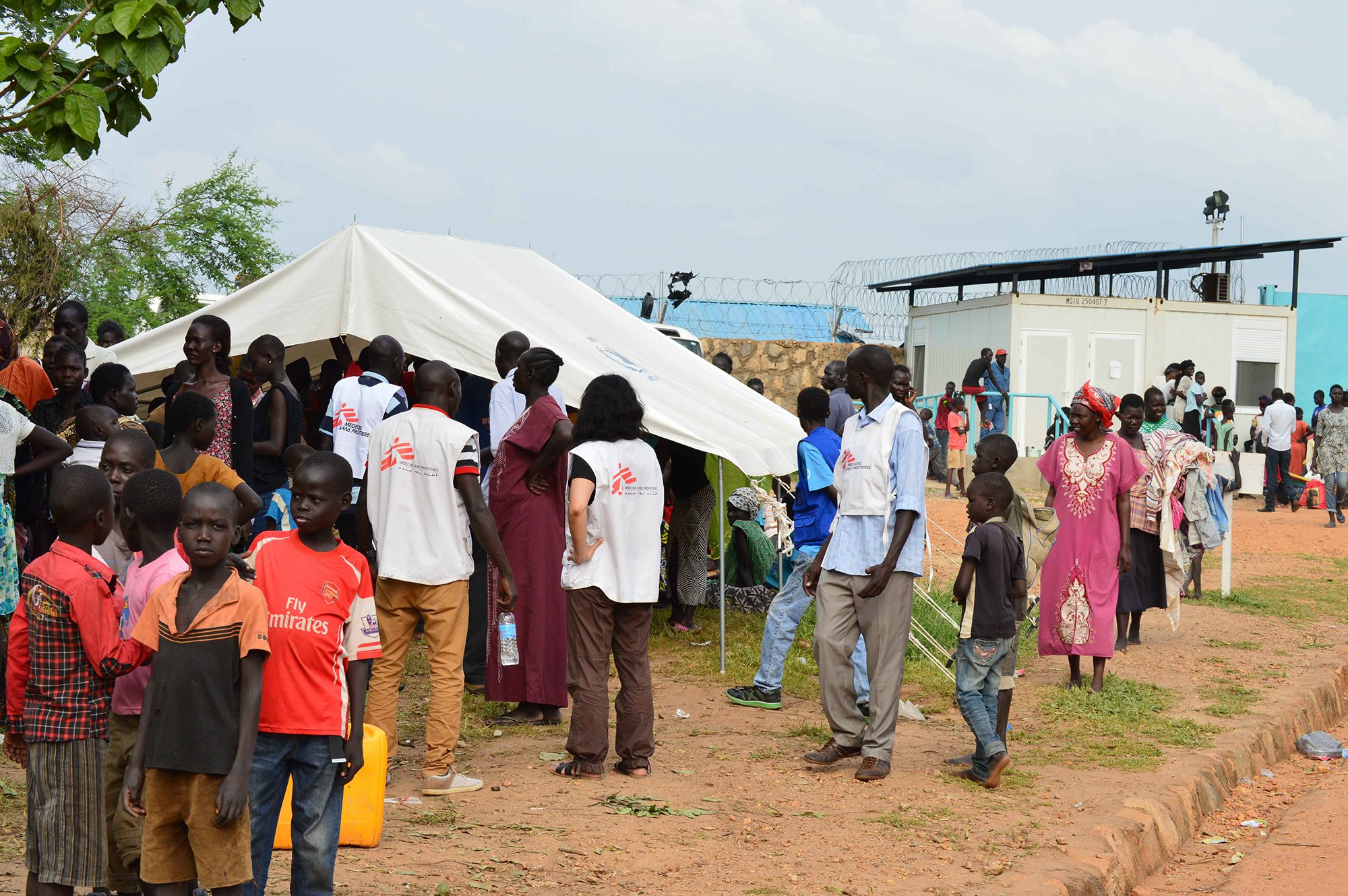South Sudan: responds to medical needs after intense fighting in Juba


Jul 14, 2016
MSF’s teams in Juba are now responding to some of the medical needs that arose following the fighting and we continue to look at ways to provide people with more assistance.
Yesterday a team of four ran mobile clinics at the St Theresa Church where 2,500 people were taking refuge. The team focused on those most in need of medical care and treated 115 people, including 82 children. The main medical needs included lower respiratory tract infections, fever and diarrhea. The team also saw two patients with gunshot wounds and treated people for injuries sustained as they fled the violence. Most people we treated said they had come from the Protection of Civilians (PoC) sites in the city. These clinics are ongoing today.
Teams are also providing mobile clinics in Gudele 1 and Gudele 2 today, where approximately 3000 people are sheltering after having been displaced by intense fighting. Guedele is the area that saw the most violent clashes due to its proximity to an army base. Yesterday the team saw bodies still lying in the street. People have also started to return home to find their houses have been looted and they have lost all their belongings. The population is extremely vulnerable and did not have access to medical care. There is also a need for water and sanitation support in order to reduce the risk of outbreaks.
MSF donated surgical kits to the Juba teaching hospital yesterday, as well as body bags to the WHO. We also resupplied the hospitals inside two of the PoCs in Juba and are bringing in a surgical team to deal with an influx of cases.
In line with rising tensions, Bentiu PoC has also seen an influx of 6000 people since the fighting in Juba broke out on Friday.
We are concerned about fighting that has already erupted in Wau and Leer where people are fleeing again – in Wau for the third time – interrupting our ability to provide people with much-needed medical care.
As usual, MSF is continuing to monitor the security situation around the country closely, but our operations in much of South Sudan are ongoing. Many of our teams are currently dealing with high numbers of patients with malaria and malnutrition, amongst a population that is already very reliant on humanitarian assistance for their survival.





Leave a Comment